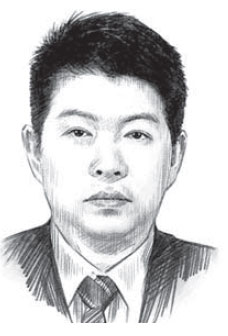Executives share views on China's Web future
Editor's note: The Second World Internet Conference, also known as the Wuzhen Summit, is taking place in Wuzhen, Zhejiang province. China Daily reporters interviewed a group of senior information technology business executives to learn their views.
Q1. What role is the Internet likely to play in China's next Five-Year Plan (2016-20) during the economy's new normal phase of slower, more sustained growth?
Q2. China aims to become a world leader in Internet technology. In what spheres do you think the country is particularly well placed to achieve this goal? What skills that China excels in do you think could be exploited to this end? What is the biggest hurdle that stands in the way of China achieving its goal?
Q3. Which particular industry do you think is going to be "shaken" by the Internet, or which area do you find the most promising to apply the government action plan of Internet Plus?
Q4. In China's Internet sector are there any areas (such as cross-border e-commerce, video or gaming) that you expect to do particularly well in the coming years?
Q5. If you were to give an Internet startup just one piece of advice, what would it be?

Chang Xiaobing, Chairman of China Telecommunications Corp
A1 In the next five years, one of China's priorities is to strengthen reforms on the supply side by encouraging traditional industries to embrace the Internet. It is the duty of telecom carriers to help promote the Internet Plus strategy. The strategy's essence is to help meet existing demand in a more efficient and convenient way while leveraging the Internet to spur new demand. This will be the new engine for China's economy and reform.
A2 China has the world's largest broadband network, with the largest Internet population and the biggest number of 4G users. Three Chinese enterprises have made their way into the top 10 global Internet companies. These achievements lay a good foundation for China to be a cyber power.
As China's economic reform is reaching the critical turning point, the biggest challenge is how to boost China's innovation capability, which will be the fundamental driver of China's growth.
A3 The Internet is reshaping many sectors such as retailing, finance, healthcare, education, transportation and agriculture. I believe the Internet will play a more important role in upgrading manufacturing enterprises. The manufacturing sector contributes to a large portion of China's GDP.
At the same time, it is the most difficult sector to push through structural reforms. The application of the Internet in manufacturing companies, especially high-end manufacturing, will promise huge opportunities.
A4 The integration of the Internet and traditional industries will greatly boost economic growth. The Internet of Things, cloud computing and big data will become the new infrastructure. China Telecom will leverage our advantage in Internet infrastructure and core competence in communication technology to help implement the Internet Plus strategy. We will focus on building comprehensive telecommunication networks and tackling Internet security problems. For instance, China Telecom is intensifying efforts to develop better mobile products to protect consumers and businesses' information and data online.
A5 Entrepreneurship is a way of realizing your dreams, and innovation will help you build a better future.

Jia Yueting, Chairman and CEO of LeTV Holdings Co Ltd
A1 China's 13th Five-Year Plan (2016-20) says that the nation will be well prepared for the next generation of the Internet. We believe the next generation of the Internet will be led by ecosystem innovation that breaks boundaries. Empowered by technological and business model innovation, the first generation of the Internet no longer meets the demands of the coming era. Only when the industrial chain is vertically reconstructed and traditional industrial boundaries are removed, can we build a complete ecosystem and realize the biggest innovation.
A2 China has already become a big nation in Internet application, with three to four times more people online than the United States, whereas Japan and South Korea are still industrial-driven economies. Only China has the world's largest scale of Internet, strongest manufacturing and electronics consumption capacity, and a long-standing history. China also has a great environment for cross-boundary collaboration. Despite strong resistance in this process, we believe that the global Internet ecosystem era will be spearheaded by Chinese enterprises.
A3 The auto industry. I envision three major Internet user scenarios. The first mobile Internet scenario was cellphones. The second is the big screen Internet scenario - TVs. And the third should be a transportation Internet scenario - cars. Phones and TVs have all been fully connected to the Internet but the car is still merely a tool to move you from point A to point B.
The Internet vehicle era will see a new scenario where mobility is well connected to the Internet, enabling an amazing in-car experience.
A4 I believe that in 2016 the opportunity window will be in sports. Incorporating the Internet with sports and other traditional industries is exactly LeTV's model. In particular, the integration of the Internet, sports and smart devices will be a huge opportunity window in 2016.
A5 The companies that really change the industry and the world will never be those who wait around for opportunities, but those that are like eagles, breaking the status quo and exploring possibilities freely. We should become eagles and create the future for ourselves, for China.

Zhou Hongyi, Chairman of Qihoo 360 Technology Co Ltd
A1 From the PC era to the mobile Internet era, the Chinese cyber industry has entered an age of the Internet of Things in which the Web connects everything.
China is standing on the same line as the United States and other developed nations in the industry and has a chance to surpass the West as the world talks about Internet 3.0.
A2 I think innovation will be the biggest opportunity, and, in the meantime, a huge challenge for the Chinese Internet industry. Our mainstream values do not go well with innovation.
An entrepreneur has to be tolerant of failure because there is high chance for an innovative idea to fail. Only when the country establishes a culture that tolerates failures will its people attempt things they did not previously dare.
To be innovative, we must allow the existence of new things that are outside of our imagination. However, the Chinese culture worships success and advocates conformity.
These factors are most likely to hinder the growth of Internet-based innovation. I think this will be the biggest challenge. We should give new trends emerging in the industry more space and support instead of containing them with preexisting rules that may not fit.
A3 In the future, I think the Internet will be adopted by every industry and will be transformed by traditional industries as well. It should be an all-industry thing.
A4 In the age of the Internet of Things, smart-connected hardware will be the next big thing, using technology to change the way people live and solve problems the public faces. Qihoo 360 has started to make steps in the smart devices market. We have produced smart security cameras, smart watches for kids and driving recorders to help tackle safety problems at home and on the road.
In addition, we have developed environmental safety and information security products. These are the key focus for Qihoo 360.
A5 For a startup, the standard for success is not the amount of financing. A successful company should keep making products that meet customers' requirements.

Reid Hoffman, Executive chairman and co-founder of LinkedIn
A1 Under the circumstance that the China government is advocating the spirit of entrepreneurship, many more people will become entrepreneurial, if not entrepreneurs. The keeper of your career will be not your employer but your personal network - so you'd better put a lot of effort into making it as extensive and as vital as possible.
The Internet is a critical and an effective vehicle for individuals and enterprises to gather information and resources, talent and technology improvements are also vital elements to help enterprises come through a low accelerating economy situation. I'm sure this vehicle will absolutely play an important role in the next five years in China.
A2 China has great engineering schools and many great engineers. Some of the Chinese Internet entrepreneurship has been world-leading - whether it's WeChat as a communications platform, a truly global marketplace with Alibaba, or the massive number of startups in offline to online. China's culture of working fast and trying many options will create great companies here. I believe readiness to embrace the new era is vital, including individuals and companies.
Every once in a while, a great opportunity comes along that might help you leapfrog up the career ladder. Such breakout opportunities may seem like blind luck, but a talent can always develop thinking and behaviors that help you recognize when such "luck" appears. One habit is to remain curious about events that happen in your everyday life. Stay focused, keep self-developing and be vigilant to opportunities.
A3 I definitely see cross-border e-commerce.
A4 I also see the intersection of hardware and Internet services doing very well, for example Xiaomi or other companies that combine hardware with digital services. I also think that some of the experiments on business models for software, both in games and in security, will teach great things to entrepreneurs around the world.
A5 Given the volume of competition in China, it may be very useful to start with an idea that initially seems crazy then once you get to scale is very valuable. Linkedin was one of these ideas.

Ralph Haupter, CEO of Microsoft Corp in China
A1 Over the last decade, we have seen a boom in Internet businesses in China, and we have seen entirely new business sectors and business models emerge because of what this connectivity makes possible. As a catalyst for innovation in China, the Internet and the technologies that depend on it will only grow more important and will be essential to unlocking the innovation potential of its young people. With the Internet as a bridge, many Chinese companies, big and small, will be empowered to go global like never before.
A2 Not many countries have an agenda as clear as China's when it comes to leveraging technology. The new growth model and Internet Plus initiative aimed at economic transformation presents an enormous opportunity for IT to be a key enabler of productivity, efficiency, innovation and prosperity across the broadest set of industries and services.
I think China needs to encourage industries to make maximum the use of what they have by deploying hybrid solutions. Microsoft is the only company that offers a world-class enterprise cloud spanning private, public and hybrid solutions, with contractual uptime guarantees and access to advanced data platforms.
A3 I think China's manufacturing sector will see the most transformation because of Internet Plus. With the proliferation of IoT devices and sensors that are broadly applicable, there is enormous opportunity for data collection and to derive actionable insight from manufacturing processes.
A4 The next big trend empowered by Internet infrastructure will be about getting insight from data, and particularly around the Internet of Things. It is fairly widely understood that cloud computing can help lower transformation costs for traditional industries and create new windows for regional economic restructuring, but how IoT can help businesses convert data into new opportunities and enable them to change their business models is still a relatively new idea.
A5 I would tell entrepreneurs to take risks and pursue their passions first and foremost. But I would encourage them to really think about the true value they bring to market as they do so. Maintaining China's momentum in this area depends on encouraging the next wave of innovation in emerging sectors.

Shen Ya, CEO of vip.com
A1 As the Chinese economy has entered its new normal phase, the government has lifted its Internet Plus concept to a national policy, encouraging grassroots entrepreneurship and innovation.
Innovation-driven development and expanding the space of the network economy have been listed as a key direction during the 13th Five-Year Plan (2016-20) to promote the integrated development of the Internet, economy and society. This is good news for vip.com, an innovative e-commerce enterprise which relies on Internet Plus.
A2 Opportunities: I always believe that innovation is the main theme of the Internet industry and the core competence of Internet enterprises' long-term development. We should not only continue to innovate in the technology area, but also have an open mind in business model and organizational management.
Challenges: When the Internet economy takes a greater proportion of national economic development, network security also plays an increasingly role.
What we need do is to pay attention to network security and improve the defense ability of network security using core technology, talent cultivation, management coordination and improvement of related law knowledge.
A3 Financial services. In 2015, the Internet consumer finance market is in a new node. In an era of the experience economy, businesses make use of Internet technology to co-create an experiential earning model with specific consumers at a specific time, place and situation, so the consumer finance field will be a "blue sea" that Internet finance enterprise can dive into.
A4 The Internet Plus and innovation strategies launched by the government have provided e-commerce companies with a historic opportunity of going global and connecting with international supply chains. That is, overseas goods of high quality could be introduced into China through cross-border e-commerce platforms, and excellent Chinese brands and products could be taken to the world.
A5 Stay low-profile and do solid work. There is no shortcut for entrepreneurship, all you can do is to hold on until the end.
(China Daily 12/17/2015 page22)














